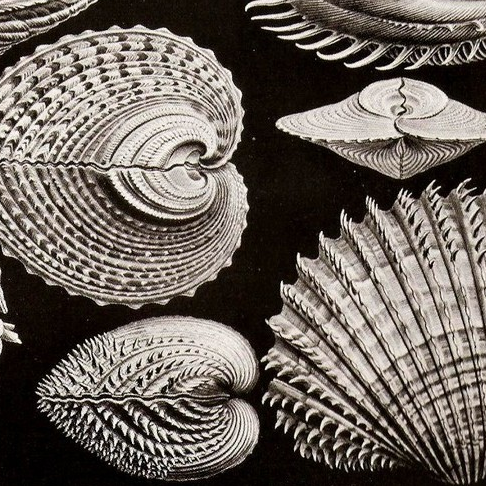Shells and Pebbles
Interesting finds on the shores of the history of science and the humanities
-
Of Embryos and Transmutation III – Darwinian recapitulations
By Robbert Striekwold The name that is most often associated with recapitulation is that of Ernst Haeckel, who believed that the study of embryos provided the best means of reconstructing evolutionary history. In this he took his cue from Darwin, who wrote in 1860 that embryology was the “strongest single class of facts in favour…
-
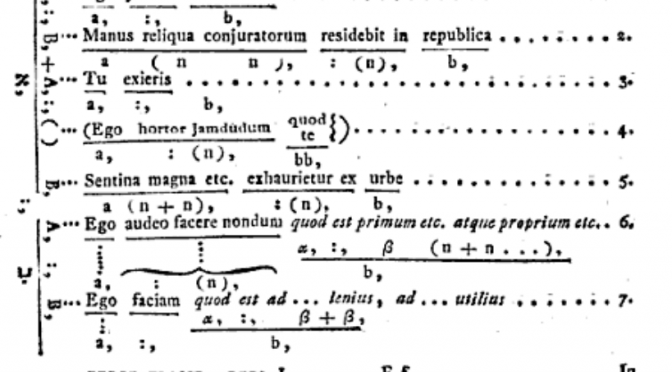
Een boomdiagram uit 1817
Door Floris Solleveld Soms is facebook nuttig bij je onderzoek, en niet alleen als afleiding. In december postte ik een schema uit Johannes Kinkers Inleiding tot eener wijsgerige algemeene theorie der taalen (1817), met als toelichting: “Universal Grammar or something like it as it was in 1817”. Een bevriende linguïst reageerde: “Stuk leesbaarder dan die…
-
Incredibly Obscene Research in the Age of Purity: Four Pioneering Studies on Toilet Graffiti
By Hans Schouwenburg In a previous article I showed how fraternity students in the Utrecht University Library use phallic symbols to define their mutual identity vis-à-vis other groups. This time, I will look at the researchers who have studied toilet graffiti. I will review four pioneering studies on the subject that were published in the…
-
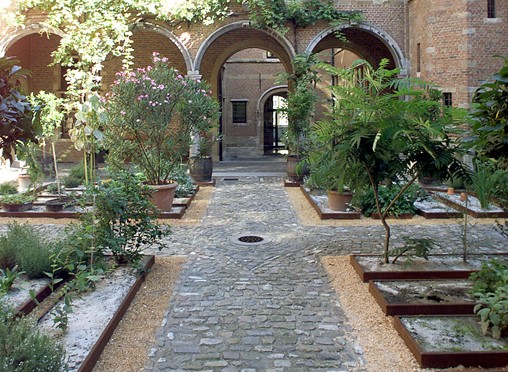
Het Gulden Cabinet. Luxe, kunst en kennis in vroegmodern Antwerpen
Door Marlise Rijks Een zomerse dag in Antwerpen betekent volle bierterrassen, de schittering van de zon op de Schelde, en de onvermijdelijke massa’s winkelende mensen die zich uitleven in de ‘solden’ (opruiming). Wie deze zomer de Scheldestad bezoekt en wil weten waar zeventiende-eeuwse Antwerpenaren hun geld aan uitgaven, moet eens een kijkje nemen in museum…
-
Of Embryos and Transmutation. Part II – Malformations and Abortions
By Robbert Striekwold Theories of recapitulation arose in the late 18th but came to full bloom in the early 19th century. The common feature of such theories was the idea of a strong relationship between embryonic and species development. Such views were popular especially among the German Naturphilosophen, whose worldviews proved highly conductive to recapitulationist…
-
Het verborgen verhaal van Hugenholtz. Hoe een buitengewoon begaafde psychiater is vergeten
Door Susanna Bloem Stoffige boeken verzamelen zich in kringloopwinkels. Daar wagen ze een laatste poging de ideeën die ze herbergen kenbaar te maken aan de wereld. Ik zie die boeken als versleten dragers van betekenis. Ze wachten op een toevallige voorbijganger die ze weer oppoetst en hun ideeën redt van de vergetelheid. Op een regenachtige…
-
Joints of meat or delicate dishes: diverging paths in English and French cuisine
By Rosa Runhardt It’s become a platitude that the French live to eat, whereas the English eat to live. Visitors to both regions certainly remark on the French cuisine’s joie de vivre and the English’s plain fare. A look at the history of food, particularly of the aesthetic matters of taste and preference, shows that…
-
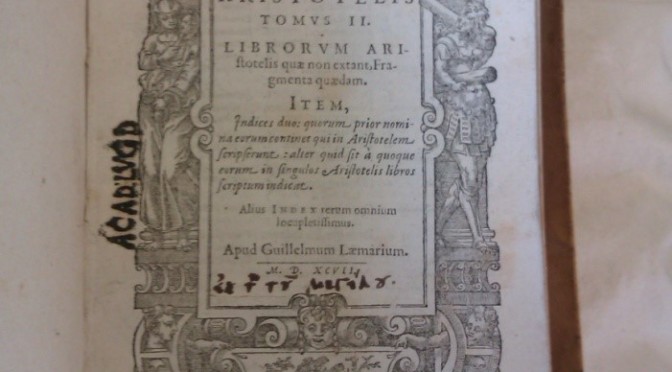
Aristoteles als kladpapier
Door Susan Derksen Er zijn lezers die zich er stevig aan ergeren: je leent een boek bij de bibliotheek, slaat het open en moet dan constateren dat een vorige lener er een meer interactieve relatie met het materiaal op na hield dan jij had willen beleven. Uitroeptekens, pijlen, trefwoorden, onbedoeld vervelend pedante correcties: typisch ergernissen…
-
Of Embryos and Transmutation Part I – A Genealogy of Evolution
By Robbert Striekwold Ideas concerning species transformation and embryonic development enjoy a long and quirky history of perceived parallels and cross-pollination. In the first and introductory part of this series, I will take a look at the etymology of the word ‘evolution’ in biology. It entered the field as a term in embryology in the…
-
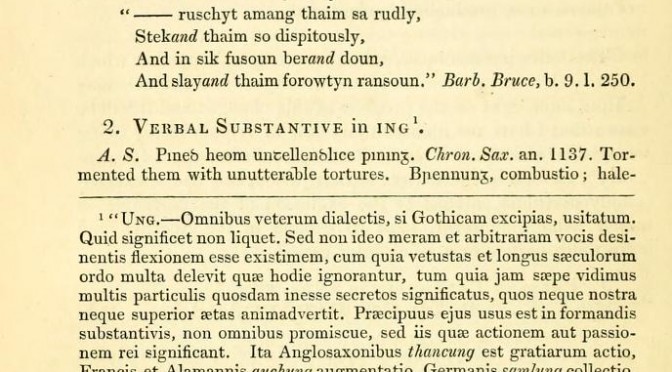
The Uses of Snobbery. How leaving out explanations kicked historical linguistics upward
By Floris Solleveld How many people could read Arabic script in Germany around 1800? The question struck me in 2006 as I was making my first steps in intellectual history with a paper on Friedrich Schlegel’s Über die Sprache und Weisheit der Indier (1808). Schlegel’s book – now considered a groundbreaking work in comparative linguistics…
-
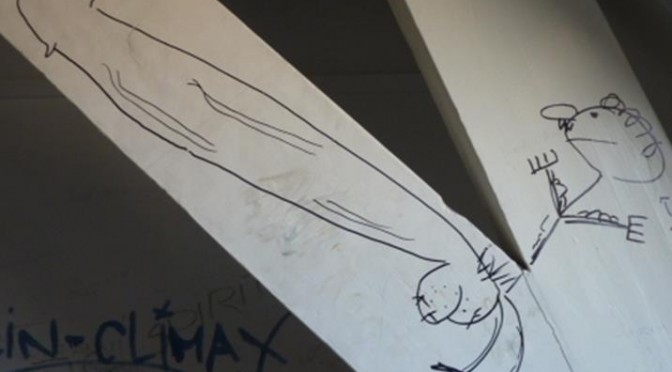
The Tale of the Four Foot Phallus
By Hans Schouwenburg Until its renovation in 2010, the former Arts and Humanities Library of Utrecht University (Letterenbibliotheek) housed a rather unusual treasure. It was not a rare book, incunabulum, or any other peculiar curiosity from the special collections. Nor was it proudly displayed in a cabinet or carefully stored on a bookshelf. In fact,…
-
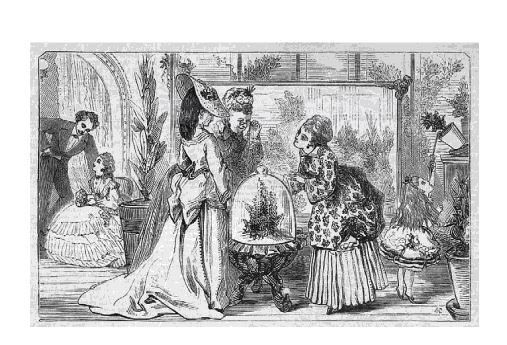
There is something about fern
By Constance Sommerey I like fern. I like the way fern unfolds itself, its elegance and its seemingly everlasting greenness. I really never gave this character trait of mine much thought. After all, it’s just fern. Yet, two years ago, something changed.
-
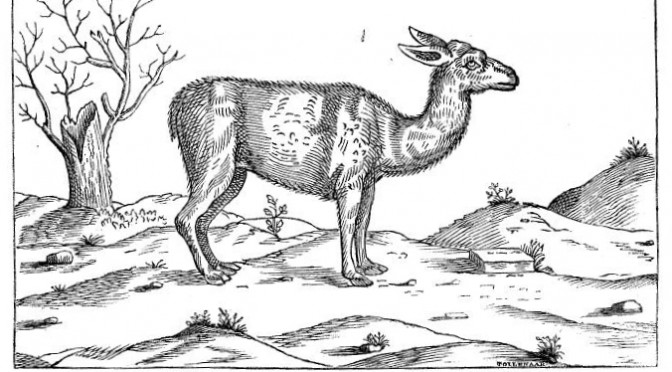
Een lama uit Middelburg
Door Jesper Oldenburger Komt het Texelse schaap echt uit Oost-Indië? Hoe kan het dat heel geleerd Europa denkt dat we onze schapen uit Azië gehaald hebben? Waar komt dit rare verhaal vandaan? Deze vragen stelde Professor Alexander Numan zichzelf in 1842 en zijn antwoorden en historische naspeuringen vormen een interessant inkijkje in hoe wetenschappelijk kopieergedrag…
-

De vooruitgang van de wetenschapsgeschiedenis: een terugblik
Door Floor Haalboom Twee quizvragen voor je verder klikt: van wanneer en van wie zijn deze woorden? “Newton’s betekenis voor de natuurwetenschap ligt ongetwijfeld in de door hem behaalde resultaten in astronomie, mechanica en optica. Het getuigt echter van een tekort aan historisch inzicht als men alleen dit deel van zijn werkzaamheid ernstig neemt en…
-
Hysterische arbeiders en nerveuze burgers. Willy Hellpachs ‘Nervenleben und Weltanschauung’.
Door Jeroen Bouterse Soms zijn psychiaters eigenlijk ook cultuurfilosofen. Dan gaat het niet alleen over hedendaagse cultuurcritici als Dirk de Wachter of Theodore Dalrymple, maar ook over de Duitse ‘zenuwarts’ Willy Hellpach (1877-1955). Die vond een blik op alleen het fysiologische aspect van de kwalen van zijn patiënten duidelijk te beperkt, en verdiepte zich daarom maar grondig in…
-
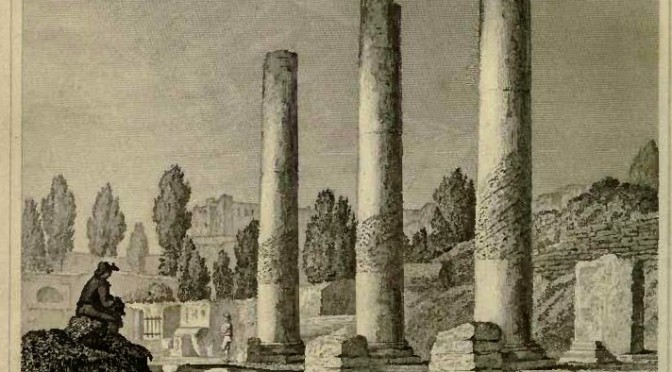
Zeg het met muzen. Het verdwijnen van de allegorische voorplaat.
Door Floris Solleveld In de achttiende eeuw was het niet ongebruikelijk geleerde werken vooraf te laten gaan door een allegorische voorplaat. Deze frontispieces bevatten, naarmate het genre zich ontwikkelde en de prenttechniek verbeterde, steeds complexere composities vol bijbelse, mythologische en soms ook hermetische verwijzingen, die als een zoekplaatje de inhoud samenvatten. Maar vanaf medio achttiende…
-
Welcome!
(English below) Beste lezers, We heten jullie van harte welkom op het nieuwe wetenschapshistorische weblog ‘Shells & Pebbles’! De eerste bijdrage is geschreven door Floris Solleveld en heet ‘Zeg het met muzen’. Onderaan kun je een reactie kwijt. Schroom niet om te reageren, Shells & Pebbles is uitdrukkelijk bedoeld als laagdrempelig platform voor het uitwisselen…
